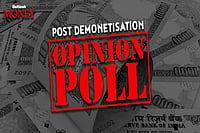India will enter the high growth zone in the financial year 2019 by crossing the 8 per cent threshold, global financial services major Goldman Sachs has said in its annual market outlook for Asian and global markets. It also forecast policy rate hike of 75 basis points in three installments by the Reserve Bank of India (RBI) by mid-2019. Indian rupee is expected to strengthen against the US Dollar on account of positive growth momentum, RBI’s hawkish stance and a steady current account deficit, among other things.
Fading away of negative impact from disruptive events like demonetisation and goods and services tax (GST) and a likely unlocking of credit and private investment growth post implementation of the bank recapitalisation programme could lead to a spurt in growth, states the report, explaining the sharp increase over expected growth of 6.4 per cent in 2018. “Activity growth suffered for a couple of months, but our Current Activity Indicator is already beginning to show early signs of a sequential growth pick up,” the report noted. Pointing to the strong inflow of domestic funds into the Indian equity markets, Timothy Moe, co-head, macro research, Asia Inflows and Chief Asia-Pacific Regional Equity Strategist at Goldman Sachs noted that domestic money was setting the price now. “Foreign institutional investors (FII) are no longer the price-setters,” he said. The firm’s Nifty target for 2018 is 11500.
However, the overall positive outlook for India also comes with its share of risks. Moe identified lack of delivery on the earnings front as a key risk. “If earnings disappoint, it will be a negative. Further delay in delivery of earnings is a risk. They have to come through,” he added. The firm’s chief Asia economist Andrew Tilton also counted inflation and vagaries of weather amongst the risk factors, apart from geopolitical risks.






























